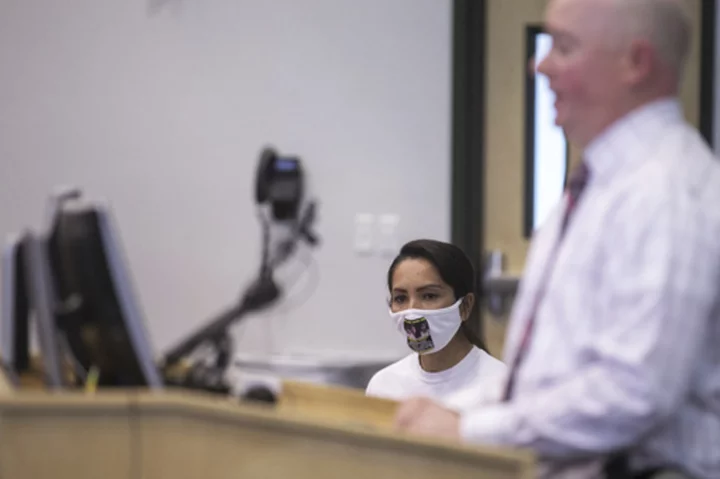North Carolina's Republican-led Senate on Tuesday voted to override a veto from Democratic Gov. Roy Cooper over a bill that would ban most abortions after 12 weeks.
The vote was 30-20 along party lines.
The House, where Republicans hold a 72-48 majority, will next consider Cooper's veto, and a three-fifths vote of all voting and present members there would successfully enact the bill into law. The chamber is not expected to consider an override vote before Tuesday night.
Cooper vetoed the abortion ban on Saturday after the Republican-controlled state Senate advanced the bill to his desk in a party-line vote.
The governor had placed pressure on four state Republican lawmakers who had previously vowed to protect abortion rights -- state Reps. Ted Davis, John Bradford, Tricia Cotham and Republican state Sen. Michael Lee -- by paying visits to their districts and urging them to stand by their comments.
"We are going to have to kick it into an even higher gear when that veto stamp comes down. If just one Republican in either the House or the Senate keeps a campaign promise to protect women's reproductive health we can stop this ban," Cooper said at a rally on Saturday.
Republicans in the state gained a veto-proof supermajority last month when then-Democrat Cotham switched parties. Cotham, who had campaigned in favor of abortion rights as a Democrat, was one of the Republicans who voted for the bill. She also sponsored legislation earlier this session to codify Roe v. Wade.
The bill -- Senate Bill 20, dubbed the "Care for Women, Children and Families Act" -- would ban any licensed physician from performing surgical abortions after the 12th week of pregnancy. It would provide exceptions in the case of rape and incest through 20 weeks of pregnancy or in the event of a "life-limiting anomaly" through 24 weeks.
Under the bill, the procedure could be performed by a physician if a doctor determines an abortion is necessary to avert death -- "not including psychological or emotional conditions."
Under current state law, abortions are legal up to 20 weeks of pregnancy. A reduction to 12 weeks would be significant but less restrictive than some other GOP-led states that have recently enacted six-week or near-total bans on the procedure.
The bill also would prohibit health care providers who object to abortion "on moral, ethical, or religious grounds" from being required to participate in medical procedures that would result in an abortion.
It also calls for multiple in-person examination by physicians seeking to prescribe or administer abortion-inducing drugs and would prohibit people within the state from mailing such drugs to a pregnant woman. The bill would mandate that doctors confirm that the "probable gestational age" of a fetus is no more than 10 weeks before they can sign off on a medication abortion.
This story has been updated with additional information.









